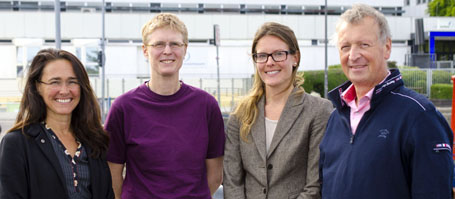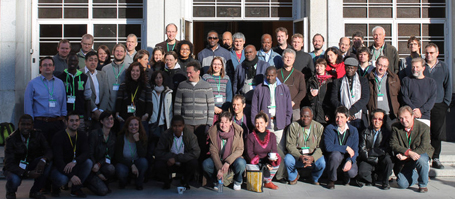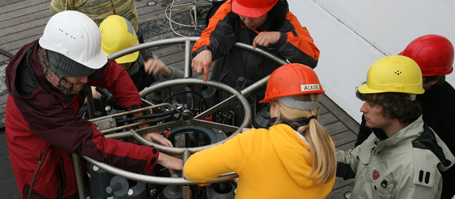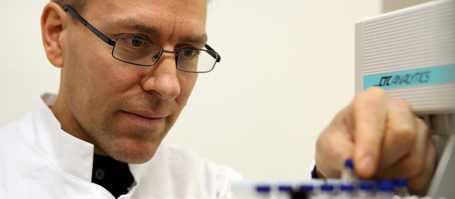This range of topics will be greatly broadened in the course of this year when eleven scholarship holders begin working in the partner program “Transatlantic Ocean System Science & Technology” (TOSST) at Dalhousie University in Halifax, Canada. “From the start HOSST was planned as a German-Canadian, transatlantic program, in which young scientists cooperate with each other and with experienced researchers,” says HOSST spokesman Professor Wolf-Christian Dullo from GEOMAR. The TOSST launch in Halifax is coming a good deal closer: This week the Canadian project coordinator Brendal Davies visited Kiel to take a look at the activities on the German side, the working environment and the colleagues. The visit program included guided tours of GEOMAR and CAU, conversations with the PhDs, the scientists participating in HOOST and the HOSST coordinator as well as the HOSST-Basic Seminar. “I am very impressed how the HOSST PhDs have already expanded their network and exchange information and ideas across disciplines,” says Davies, “we hope to establish a similar working environment.”
TOSST is expected to begin in September as a joint project between Dalhousie University and the Halifax Marine Research Institute. The German program HOSST is financed by the Helmholtz Association for six years with 1.8 million Euros. “Ocean Research is an international business. Future scientists must quickly learn how to prove themselves and cooperate in international teams,” explains Professor Dullo from GEOMAR.
…



